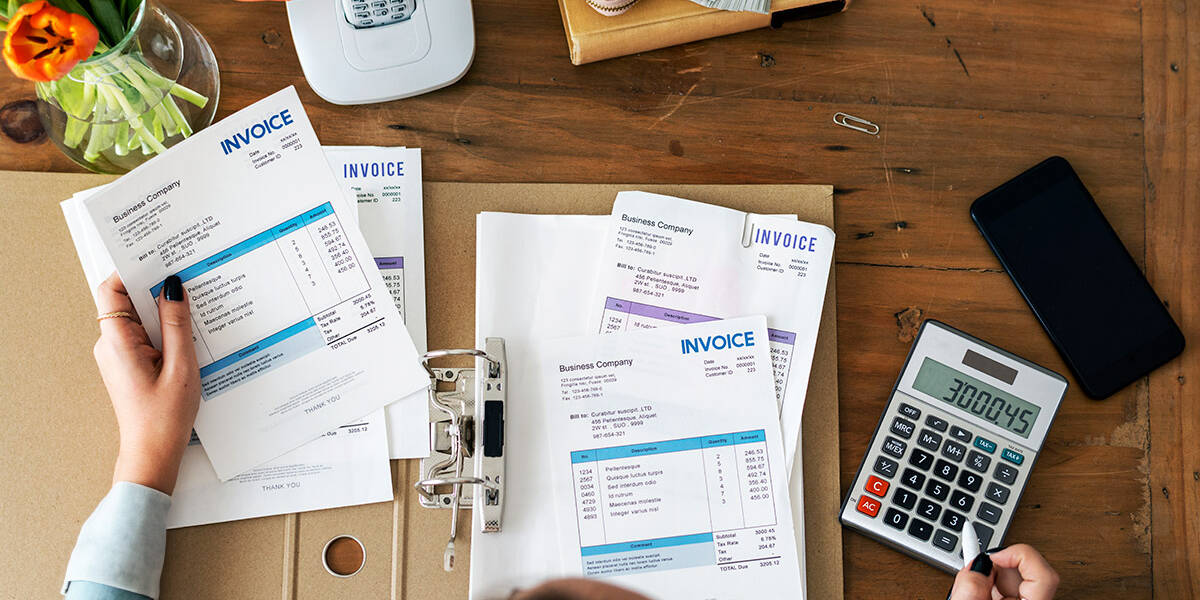

Taxes are imposed on various financial aspects of individuals. Taxation laws are governed by a particular authorized body and there are observable differences in each territory.
In this article, we will explore the significant details of the Hong Kong salary tax allowance and discuss how it affects both locals and foreigners.
Regardless of what specific taxation laws apply to a place, income taxes are commonly imposed on profit-earning individuals. To be precise, income tax refers to the payer’s contribution to their government funds as these are computed based on their profits earned.
The net gain in salary is the primary source of taxation computation. To ensure that we get the most accurate tax computations, we need to file an income tax return form that asks for our relevant tax information.
Well, this has been the common blueprint of Hong Kong salary tax allowance in the region, similarly to most other parts of the world. Let us see how this will affect Hong Kong’s salaries. Read more to find out about the system of tax rates and tax deductions particular to Hong Kong taxation laws.
1. Reduce Hong Kong Salary Tax Allowance Through Tax Exemptions From “Earned” Income
Indeed, there is the existence of a Hong Kong salary tax allowance. Often taxation is a confusing concept as there exist various kinds of taxes and each fall under different requirements.
Everyone with a source of income here is under the jurisdiction of the Hong Kong salary tax allowance. Therefore, any employer based in Hong Kong would mean that every employee would have their entire income assessed for profits tax.
Earned income in Hong Kong is under the Hong Kong salary tax allowance. For foreign businesses and employers, income would be considered to be earned in Hong Kong as long as the services are rendered in Hong Kong.
To make the most out of our income, we need to find the most decent and fairest taxation laws that provide the perfect balance between reasonable contribution and appropriate usable amount for the larger authority.
Hong Kong is one of the places where income tax rates are very reasonable and competitive in many first-world economies. The rules for income tax to foreign businesses are exceptionally reasonable. Because of this, many foreign businesses find it attractive to start rendering services in this place.
The Comprehensive Arrangement mentions exemptions from taxation based on these conditions:
- The individual is present here for not more than a cumulative 183 days in the taxable year.
- The remuneration has been paid for the benefit of the employer who is not on the Mainland.
- The remuneration has not been from a permanent establishment on the Mainland.
2. Reduce Hong Kong Salary Tax Allowance Through Full/Partial Exemptions On Income Tax
Hong Kong imposes income tax on all individuals that work in it. The terms salary tax and personal tax also refer to the same concept. But as we will uncover later, there is also the existence of the Hong Kong salary tax allowance.
The net chargeable income of employees is not too stiff as the legislations allow exemptions to the Hong Kong salary tax allowance. We can obtain either full or partial exemption given that we fall under either of these circumstances:
- If our total income in that particular year is not rendered within Hong Kong, then it is a ground for exemption in Hong Kong salary tax allowance. An exception to this is civil servants and crew members of ships and aircraft.
- If we earn a salary from doing services in Hong Kong in visits below 60 days in a year, it would not be taxed. The visit is under a case-to-case analysis as to whether it would be treated as a “visit.”
- If the income has been taxed by another place in that particular year, the partial exemption can be claimed in Hong Kong. For this to work, evidence of paying tax in another territory must be provided.
Moreover, individuals who are employed outside Hong Kong will only have part of the income worked in Hong Kong. This will apply, for instance, to individuals employed by an overseas company that renders services in Hong Kong.
3. Reduce Hong Kong Salary Tax Allowance Through Personal Income Tax Rates Deductions
To give us an overview of the Hong Kong salary tax allowance or personal tax, here are some general facts to see:
- Individuals will have their tax deductions computed based on their net chargeable income which is the amount obtained after deductions and allowances.
- The tax is at progressive rates. The rate starts at 2%, 7%, 12%, and up to 17%. Sometimes, an average rate of 15% is used. The lower rate at that time is the one imposed on the individual.
- The personal income will be under the territory principle of Hong Kong. Therefore, income from Hong Kong, or at least derived from it, will be computed for taxation.
- Capital gains tax, estate and inheritance tax, withholding tax, and value-added tax are not imposed.
- Personal taxes are obtained yearly only after allowances and deductions are calculated into their profits.
- The personal salary tax is assessed yearly from April 1st to next year’s March 31st.
- Forms regarding personal taxes are issued in April or May and would be due a month after issuance.
Additionally, Hong Kong does not push for capital gains taxes and there are many tax deductions and allowances to make up for the cuts.
Deductions and allowances make Hong Kong a cut above the rest with their taxation rules. Hence, it is not surprising to see that many foreigners are starting their businesses in Hong Kong.
Assessable income is taxed at 16.5% here. Aside from these progressive rates, the Inland Revenue Department (IRD) would also provide tax exemptions for offshore funds in Hong Kong’s operating ships.
Income earned through the professional reinsurance of offshore risks as well as profits from an eligible corporate treasury center is taxed at a rate half that of corporations.
4. Reduce Hong Kong Salary Tax Allowance Through Non-Assessable Income
Since we obtain income from all sorts of business activities, Hong Kong has clarified rules regarding non-assessable income. This means that there are salaries that are non-chargeable and we do not need to include them in our next tax return.
- Severance payments – these include long service payments that must be paid per the Employment Ordinance. Hence, these are not assessed under the Hong Kong salary tax allowance.
- Jury fees – fees incurred from Hong Kong’s court of law do not need to be reported for income deductions.
Taxable income
Hong Kong salary tax allowance can be charged from most income as a result of employment, companies, and pension from Hong Kong. Here are the taxable income to remember:
- Salaries and wages
- Pensions
- Allowances and fringe benefits
- Commissions and bonuses
- Any form of tips obtained from employment
- Employer’s Hong Kong salary tax allowance
- Stock awards
- Rental value with a calculated 10% of the income
- Back pay and deferred pay
- Termination payment and retirement benefits
Included Items in Hong Kong’s Personal Allowances
Hong Kong salary tax allowance has been beneficial in most instances. But their legislations go further as it stipulates the following items as part of their personal allowances:
- Basic allowances
- Allowance for a married person
- Allowance for a dependent parent or grandparent
- Additional allowance for a dependent parent or grandparent
- Allowance for a single parent
- Child allowance
- Disabled dependent allowance
- Personal disability allowance
Calculation of Net Chargeable Income
Net chargeable income refers to our income that would be subjected to the taxation laws of Hong Kong. This net chargeable income can be determined using the following formula:
- NCI = Income – D – A
- Where
- NCI stands for Net Chargeable Income
- D stands for Deductions
- And A stands for Allowances
- Where
Furthermore, charitable donations can also be deducted from the individual’s income, as applicable.
Hong Kong’s Tax Rate on Income Tax
As a reference, the currency Hong Kong dollar will follow the average of 1 US Dollar to 7.8 HK Dollars.
Following the HK Dollar, here is the Net Chargeable Income and the corresponding rates to be applied
- For 0 – 50,000 HKD, a 2% rate is applied
- For 50,001 – 100,000 HKD, a rate of 6% is applied
- For 100,001 – 150,000 HKD, a rate of 10% is applied
- For 150,001 – 200,000 HKD, a rate of 14% is applied
- For 200,001 HKD and above, a rate of 17% is applied
- For a net total income without allowances, a standard rate of 15% is applied
Essentially, the tax rates will be based on the computed net chargeable income. The rates can start from 2% and the ceiling rate would be 17%.
How Can We Help – Our Professional Taxation Services
Foreign businesses can make the most out of the reasonable taxation rates of Hong Kong. And it is important to make sure that handling of these taxes, like the Hong Kong Salary Tax Allowance, is made accurately and professionally.
Corporate tax indeed affects the long-term success of a business. Therefore, businesses need to get all the professional aid they can to make sure that these will not hamper their business operations.
Premia TNC can provide you with top-quality payments and calculations that would make your obligations less of a burden. We will commit to all sorts of calculations including joint assessments, voluntary health insurance schemes, and lots more!
We have a team of experts with adequate knowledge to ensure that your accounting and taxation matters are handled with ease.
Hong Kong Salary Tax Allowance – Frequently Asked Questions
1. How can we reduce my tax in Hong Kong?
Numerous allowances are available in Hong Kong to reduce the tax needed to be paid. But along with this, there are other deductions that can help in further cutting down our tax in Hong Kong.
The deductions allowed to be cut from the Hong Kong Salary Tax Allowance include the following:
- Outgoings that are exclusive and entirely made from assessable income can be deducted. Exceptions to these expenses are something used for private needs or as capital.
- The Voluntary Health Insurance Scheme Policy is applicable for deductions. These are according to the Inland Revenue Ordinance of 2018.
- Annuity premiums are deductible from salary tax.
- Education expenses can be deductible as well. This includes a student’s tuition fees and other examination fees.
2. What is the BIR60?
BIR60 is a form issued to taxpayers. With this form, individuals can report their salaries, rental incomes, and profits so that these can be assessed.
The BIR60 must be filled up with accurate information and completed within the prescribed deadlines. Block extensions allow taxpayers to request submission beyond the date due. However, these are only allowed in cases with exceptional reasons and are assessed on a case-to-case basis.
3. Do we need to file a personal tax return?
Taxpayers have the duty to file an annual tax return based on the Inland Revenue Department (IRD). The deadline for filing tax returns is one month from the date it was issued.
For individuals without any income to put in this report, the tax form would declare that the income is zero for that fiscal year.
Married couples can put a joint assessment that combines their income. With this approach, the married couple can have a lower liability with their taxes.
The sole proprietor of a particular company also needs to file personal tax returns. This time, a 3-month deadline is in place. After filing the returns, a Notice of Assessment will be sent by the IRD. This tax bill will have the amount required to pay and other provisional tax salaries according to the regulations of the Hong Kong Salary Tax Allowance.
4. What is an option if we disagree with our tax bill?
After filing a personal tax return, a tax bill will be sent that states all the tax amounts that need to be paid.
If there happens to be a disagreement with the tax bill, an option is to state your objection by informing the tax department.
It is essential to complete the objections within 30 days from the issuance of the tax bill.
5. Will Hong Kong tax my allowance?
According to the regulations on the Hong Kong Salary Tax Allowance, any income received from employers that fall under allowances and fringe benefits must also be reported on the tax return.
6. What would be done if my monthly income fluctuates below 50,000 HKD?
A fluctuating income means that the individual would not be required for any compulsory contribution during the months of fluctuation.
Therefore, the individual would only need to make their mandatory contribution during the time of the year when the income level is greater than that of the minimum.
7. Is there a need to apply to the Inland Revenue Department to report income from particular employment?
Normally, there is no need to personally apply. The employers are tasked to notify the employee of any chargeable taxes.

premiatnc
View All BlogsRelated Posts
April 15, 2024
Trademark Registration In Hong Kong: What You Should Know
Trademark registration in Hong Kong…
April 15, 2024
Importance of Hong Kong Company Financial Statements: How to Prepare It Well
In the realm of business, Hong Kong…
March 29, 2024
Everything You Need to Know About Hong Kong Invoice Requirements
Compliance ensures smooth financial…




